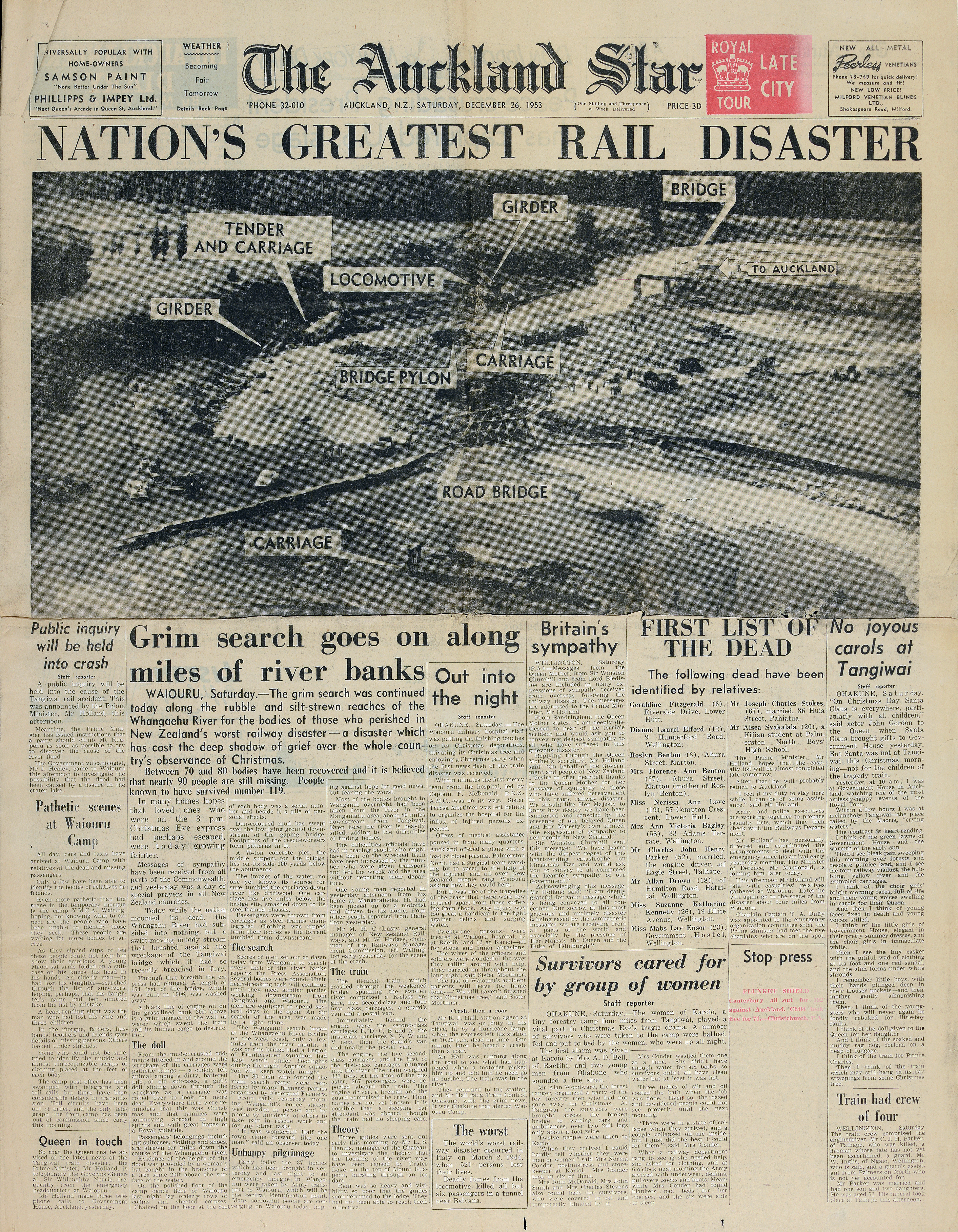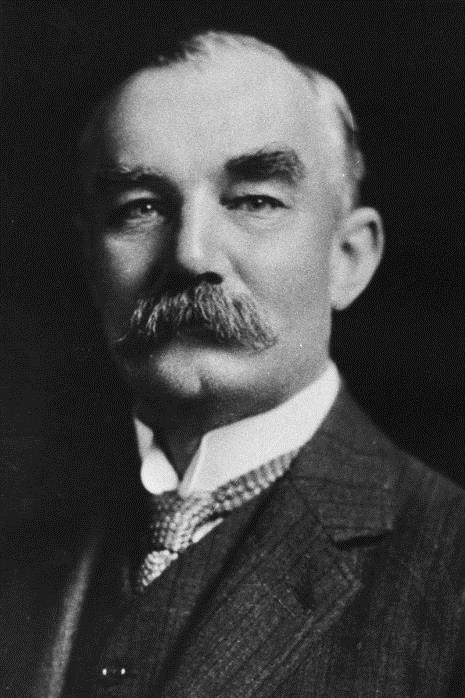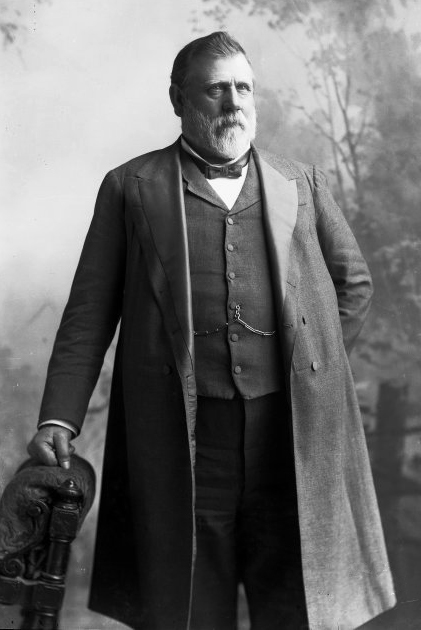|
1892 Rangitikei By-election
The 1892 Rangitikei by-election was a by-election held during the 11th New Zealand Parliament in the Rangitikei electorate of the North Island. This was the fifth by-election since the Rangitikei electorate was established for the 1861 election. The previous by-election took place in 1880 and the following one took place in 1909. Robert Bruce, who had previously been the MP for Rangitikei between 1884 and 1890, won the by-election narrowly. This was the last election in Rangitikei and the fifth last election overall in New Zealand in which there was no universal suffrage. The Electoral Act 1893 extended voting rights to all women aged 21 and over. Background Robert Bruce, an independent, had previously been the MP for Rangitikei between 1884 and 1890. In 1890 he contested the election for the Waitotara electorate in South Taranaki, but was beaten by incumbent George Hutchison. The Rangitikei electorate, meanwhile, was won by Douglas Hastings Macarthur, but Macarthur died on ... [...More Info...] [...Related Items...] OR: [Wikipedia] [Google] [Baidu] |
No Image
No (and variant writings) may refer to one of these articles: English language * ''Yes'' and ''no'' (responses) * A determiner in noun phrases Alphanumeric symbols * No (kana), a letter/syllable in Japanese script * No symbol, displayed 🚫 * Numero sign, a typographic symbol for the word 'number', also represented as "No." or similar variants Geography * Norway (ISO 3166-1 country code NO) ** Norwegian language (ISO 639-1 code "no"), a North Germanic language that is also the official language of Norway ** .no, the internet ccTLD for Norway * Lake No, in South Sudan * No, Denmark, village in Denmark * Nō, Niigata, a former town in Japan * No Creek (other) * Acronym for the U.S. city of New Orleans, Louisiana or its professional sports teams ** New Orleans Saints of the National Football League ** New Orleans Pelicans of the National Basketball Association Arts and entertainment Film and television * ''Dr. No'' (film), a 1962 ''James Bond'' film ** Juliu ... [...More Info...] [...Related Items...] OR: [Wikipedia] [Google] [Baidu] |
South Taranaki
South Taranaki is a territorial authority on the west coast of New Zealand's North Island that contains the towns of Hāwera (the seat of the district), Manaia, Ōpunake, Patea, Eltham, and Waverley. The District has a land area of 3,575.46 km2 (1,380.49 sq mi) and a population of It is part of the greater Taranaki Region. The district straddles the boundary separating the Wellington and Taranaki provinces, resulting in the town of Waverley celebrating Wellington Anniversary Day in January, and the town of Patea 15 kilometres away celebrating Taranaki Anniversary Day in March. Council facilities include the South Taranaki LibraryPlus, Mania, Kaponga, Patea, Eltham, Opunake, Hāwera and Waverley libraries. History The South Taranaki District was established as part of the 1989 local government reforms, merging Egmont, Eltham, Hawera, Patea and Waimate West counties. Demographics South Taranaki District covers and had an estimated population of as of with a popul ... [...More Info...] [...Related Items...] OR: [Wikipedia] [Google] [Baidu] |
By-elections In New Zealand
By-elections in New Zealand occur to fill vacant seats in the House of Representatives. The death, resignation, or expulsion of a sitting electorate MP can cause a by-election. (Note that list MPs do not have geographic districts for the purpose of provoking by-elections – if a list MP's seat becomes vacant, the next person on his or her party's list fills the position.) Historically, by-elections were often caused by general elections being declared void. Background Under thElectoral Act 1993 a by-election need not take place if a general election will occur within six months of an electorate seat becoming vacant, although confirmation by a resolution supported by at least 75% of MPs is required. In 1996 the general election date was brought forward slightly, to 12 October, to avoid a by-election after the resignation of Michael Laws. Twice, in 1943 and 1969, by-elections were avoided after the deaths in election years of Paraire Karaka Paikea and Ralph Hanan by passing spe ... [...More Info...] [...Related Items...] OR: [Wikipedia] [Google] [Baidu] |
Rangitikei By-election (other)
Rangitikei by-election may refer to several by-elections in the history of the Rangitikei electorate. * Rangitikei by-election, 1865 * Rangitikei by-election, 1868 * Rangitikei by-election, 1875 * Rangitikei by-election, 1880 * Rangitikei by-election, 1892 * Rangitikei by-election, 1909 * Rangitikei by-election, 1978 {{disambiguation ... [...More Info...] [...Related Items...] OR: [Wikipedia] [Google] [Baidu] |
List Of New Zealand By-elections
By-elections in New Zealand occur to fill vacant seats in the House of Representatives. The death, resignation, or expulsion of a sitting electorate MP can cause a by-election. (Note that list MPs do not have geographic districts for the purpose of provoking by-elections – if a list MP's seat becomes vacant, the next person on his or her party's list fills the position.) Historically, by-elections were often caused by general elections being declared void. Background Under thElectoral Act 1993 a by-election need not take place if a general election will occur within six months of an electorate seat becoming vacant, although confirmation by a resolution supported by at least 75% of MPs is required. In 1996 the general election date was brought forward slightly, to 12 October, to avoid a by-election after the resignation of Michael Laws. Twice, in 1943 and 1969, by-elections were avoided after the deaths in election years of Paraire Karaka Paikea and Ralph Hanan by passing spe ... [...More Info...] [...Related Items...] OR: [Wikipedia] [Google] [Baidu] |
Auckland Star
The ''Auckland Star'' was an evening daily newspaper published in Auckland, New Zealand, from 24 March 1870 to 16 August 1991. Survived by its Sunday edition, the ''Sunday Star'', part of its name endures in ''The Sunday Star-Times'', created in the 1994 merger of the ''Dominion Sunday Times'' and the ''Sunday Star''. Originally published as the ''Evening Star'' from 24 March 1870 to 7 March 1879, the paper continued as the ''Auckland Evening Star'' between 8 March 1879 and 12 April 1887, and from then on as the ''Auckland Star''. One of the paper's notable investigative journalists was Pat Booth, who was responsible for notable coverage of the Crewe murders and the eventual exoneration of Arthur Allan Thomas. Booth and the paper extensively reported on the Mr Asia case. In 1987, the owners of the ''Star'' launched a morning newspaper to more directly compete with ''The New Zealand Herald''. The ''Auckland Sun'' was affected by the 1987 stock market crash and folded a year l ... [...More Info...] [...Related Items...] OR: [Wikipedia] [Google] [Baidu] |
Manawatu (New Zealand Electorate)
Manawatu was a parliamentary electorate in the Manawatū-Whanganui region of New Zealand that existed during three periods between 1871 and 1996. Population centres The 1870 electoral redistribution was undertaken by a parliamentary select committee based on population data from the 1867 New Zealand census. Eight sub-committees were formed, with two members each making decisions for their own province; thus members set their own electorate boundaries. The number of electorates was increased from 61 to 72, and Manawatu was one of the new electorates. History The electorate existed during three periods: from 1871 to 1890, 1896 to 1911, and 1919 to 1996. The first representative was Walter Woods Johnston, who was elected at the 1871 general election. He won the three subsequent general elections, and retired at the end of the parliamentary term in 1884. In the 1876 election, Johnston was challenged by the lawyer, naturalist and ornithologist Walter Buller. The contest was clo ... [...More Info...] [...Related Items...] OR: [Wikipedia] [Google] [Baidu] |
Marton, New Zealand
Marton ( mi, Tutaenui) is a town in the Rangitikei District, Rangitikei district of the Manawatū-Whanganui region of New Zealand's North Island. It is situated 35 kilometres southeast of Whanganui and 40 kilometres northwest of Palmerston North. Ngāti Apa are tangata whenua for the Marton area. The town of Marton is the largest in the Rangitikei district, and began life as a private township in 1866, when shop and housing sections were sold at auction by local landowners. The town had residents as of Marton has always been a service town for the fertile farming region of the Manawatu Plains. Butter, wool, and flour have been among its agricultural products. The arrival of the railway in 1878 led to rapid growth in the area, which soon added industries such as engineering, sawmilling, and textile production to its economy. History For three years the small village was known as Tutaenui, named after the stream running through its centre. In 1869 local citizens changed the na ... [...More Info...] [...Related Items...] OR: [Wikipedia] [Google] [Baidu] |
1892 Bruce By-election
The Bruce by-election, 1892 was a by-election held on 4 May 1892 during the 11th New Zealand Parliament in the rural lower South Island electorate of . Background The by-election was triggered after the resignation of sitting Member James William Thomson. The election was a two-way contest and was won by James Allen, previously the Member for . Results The following table gives the election results: Allen held the electorate until his own resignation in 1920 to become New Zealand's High Commissioner to the United Kingdom The United Kingdom of Great Britain and Northern Ireland, commonly known as the United Kingdom (UK) or Britain, is a country in Europe, off the north-western coast of the continental mainland. It comprises England, Scotland, Wales and North ..., which triggered another by-election. Notes References * Bruce 1892 1892 elections in New Zealand Politics of Otago {{NewZealand-election-stub ... [...More Info...] [...Related Items...] OR: [Wikipedia] [Google] [Baidu] |
New Zealand Liberal Party
The New Zealand Liberal Party was the first organised political party in New Zealand. It governed from 1891 until 1912. The Liberal strategy was to create a large class of small land-owning farmers who supported Liberal ideals, by buying large tracts of Māori land and selling it to small farmers on credit. The Liberal Government also established the basis of the later welfare state, with old age pensions, developed a system for settling industrial disputes, which was accepted by both employers and trade unions. In 1893 it extended voting rights to women, making New Zealand the first country in the world to enact universal adult suffrage. New Zealand gained international attention for the Liberal reforms, especially how the state regulated labour relations. It was innovating in the areas of maximum hour regulations and compulsory arbitration procedures. Under the Liberal administration the country also became the first to implement a minimum wage and to give women the right ... [...More Info...] [...Related Items...] OR: [Wikipedia] [Google] [Baidu] |
Independent Liberal
Independent Liberal is a description allowed in politics to denote party affiliation. It is used to designate a politician as a liberal, yet independent of the official Liberal Party of a country. Those parties were the Liberal Party of Canada, or the Liberal Party of the United Kingdom, or the New Zealand Liberal Party. Canada Independent Liberal Members of Parliament (or of the Canadian Senate or a provincial legislative assembly) are typically former Liberal caucus members who were either expelled from the Liberal Party caucus or resigned the whip due to a political disagreement. More recent examples, include Don Johnston who sat as an Independent Liberal from January 18, 1988 until the adjournment of parliament due to his resignation from the Liberal caucus as a result of his support of the Canada–United States Free Trade Agreement which the party opposed, Jag Bhaduria who sat as an Independent Liberal from 1994 to 1996 following his expulsion from the Liberal caucus and D ... [...More Info...] [...Related Items...] OR: [Wikipedia] [Google] [Baidu] |
Official Opposition (New Zealand)
His Majesty's Loyal Opposition, commonly called the Official Opposition, in New Zealand is usually the largest political party or coalition which is not a member of the ruling government—it does not provide ministers. This is usually the second-largest party in the House of Representatives, although in certain unusual circumstances it may be the largest party (due to a larger government bloc) or even a third or fourth party. The Official Opposition forms a shadow cabinet headed by the Leader of the Opposition and comprising senior MPs with the same portfolio interests as the government's ministers. Unlike in the United Kingdom, where members of the shadow cabinet are called "shadow ministers," the members of New Zealand's shadow cabinet are called "opposition spokespeople." Overview The Opposition aims to hold the government accountable and to present itself to the national electorate as a credible government in waiting. For example, during Question Time, Opposition spokesp ... [...More Info...] [...Related Items...] OR: [Wikipedia] [Google] [Baidu] |




